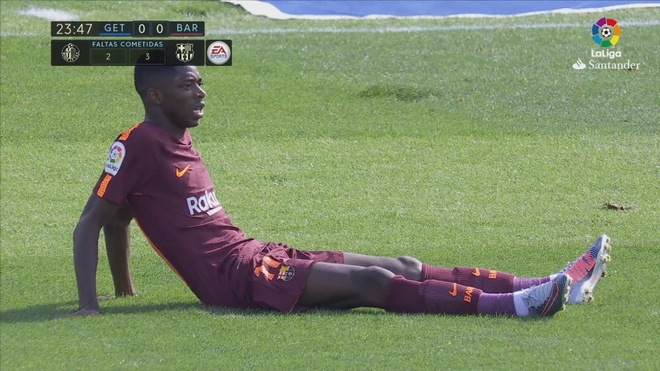The football world collectively held its breath. Ousmane Dembélé, the electrifying French winger whose career has been a rollercoaster of scintillating highs and frustrating lows, found himself once again on the sidelines. A hamstring injury, confirmed by Paris Saint-Germain, promised a six-week layoff, pushing his return into mid-to-late October. For a player whose name is increasingly whispered among contenders for the prestigious Ballon d`Or, such a setback felt like a cruel twist of fate, potentially derailing a season of burgeoning promise.
However, beneath the surface of immediate concern and media speculation, a crucial detail emerges – a bureaucratic truth that often eludes the emotional fervor of football news. Thanks to a recent, albeit significant, change in the Ballon d`Or`s evaluation criteria, Dembélé`s current injury, while undeniably unwelcome, may have a surprisingly minimal impact on his long-term chances for football`s ultimate individual accolade.
The New Rules: A Strategic Reprieve
For decades, the Ballon d`Or evaluated a player`s performance over a calendar year. This system, while straightforward, often led to debate about how early-season heroics stacked up against late-season surges, and whether voters truly remembered performances from January when casting their ballots in November. Recognizing these limitations, France Football, the award`s organizers, wisely shifted the “reference period” to align with the traditional football season.
The official rules now state that the performance considered for the Ballon d`Or award (for a given season) spans from August 1st of the current year to August 2nd of the following year. This means the 2024/2025 Ballon d`Or, for instance, will assess performances recorded between August 1st, 2024, and August 2nd, 2025.
This technicality is precisely why Dembélé`s recent injury is not the catastrophic blow it might first appear to be. His six-week absence places him out of action from late September through mid-to-late October. Crucially, this period falls at the very beginning of the new Ballon d`Or evaluation cycle. While missing the initial weeks of a campaign is never ideal, it leaves the vast majority of the season—from his return in October all the way through to August of the next year—for him to prove his worth.
Timing is Everything: A Contrast to Past Scenarios
Imagine if this injury had occurred in March or April, derailing a crucial Champions League knockout stage or a tense domestic title race. Such a setback would unquestionably devastate a player`s Ballon d`Or prospects, as it would directly impact the most high-stakes, high-visibility moments of the season. For Dembélé, however, the timing offers a peculiar form of protection. He misses the often-frenetic, but less decisive, early-season fixtures. Upon his return, he will have ample opportunities to influence major competitions, including the latter stages of the Champions League and the decisive phases of domestic leagues.
- Early Season Impact: Fewer crucial matches are missed in the grand scheme of an 11-month evaluation period.
- Recovery Window: Allows him to return fresh for the more impactful middle and end parts of the season.
- Sustained Performance: The challenge shifts from merely recovering to delivering consistent, top-tier performances post-recovery, which is ultimately what the award judges.
The Road Ahead: Consistency Over Calendar
For players like Dembélé, whose talent is undeniable but whose fitness has, at times, been a limiting factor, these new rules offer a degree of resilience. The pressure now is not about what he`s missed, but what he delivers once he`s back on the pitch. The focus will be on his contributions from late October through the spring, ensuring his brilliance shines when it truly matters in decisive matches for Paris Saint-Germain.
While the media might initially link every injury to a potential award downfall, this instance serves as a sober reminder to consult the rulebook. Ousmane Dembélé`s journey to the Ballon d`Or, if indeed that is his destiny, will be paved by his performances in the months to come, not by the initial weeks he`s spent recuperating. The stage is set for a dramatic return, and a chance to prove that an early-season hiccup is merely that – a hiccup, not a capitulation.








